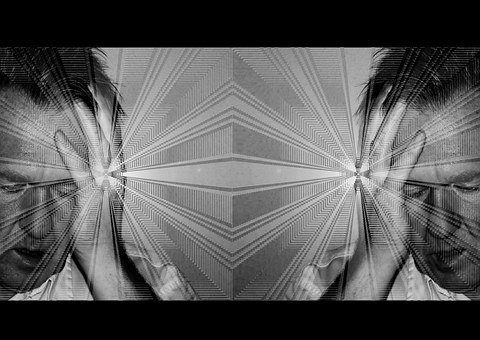How To Gain Freedom From Performance Stress?

Gain Freedom From Performance Stress!
"The truth is that there is no actual stress or anxiety in the world; it's your thoughts that create these false beliefs. You can't package stress, touch it, or see it. There are only people engaged in stressful thinking." - Wayne Dyer
In this article, you will learn about performance stress. What it is, what are the causes and symptoms, how does it affect individuals, and how you can manage with various techniques, and with the help of EFT. It is an alternate therapeutic technique which has been clinically proven to help people work on various challenges.
WHAT IS PERFORMANCE STRESS?
We all are, or were, at some point in our lives, competitive. We want to be the best, to not be left behind, to prove to our loved ones, our peers, that we can do it.
It is a healthy thing to want to give our 100%. It increases our happy hormones. Oh, that euphoric feeling!
But what we don’t realize, is that slowly and steadily, we become so engrossed in giving our best, that it starts to take a toll on us.
If you are familiar with the below-listed situations, this article is just the one for you.
“I need to score in the top three percentile, I shall study overnight.”
“I have to beat my previous record to maintain my winning streak.”
“I feel so guilty not finishing today’s tasks. I’ll do two more tasks tomorrow so I don’t fall behind.”
“I cannot be late for my meeting. I don’t want my manager to have a poor impression of me.”
Can you read the stress in those lines? How much pressure these individuals are putting on themselves?
This is called performance stress. It stems from the thoughts of always doing needing to be better and giving it your all.
Performance stress is very - unfortunately - common these days, considering that there is always competition around the corner. Even if the competition is yourself.
Whether you are:
An employee who wants to do well in their performance review
A student wanting to pass their exams and be selected in the college of their choice
A teacher finding it hard to balance time between teaching, administration duties, and their personal life.
A child being pressured by their parents to do well in school
A nurse faced with more patients than hospital beds
A model trying to not eat as much as she wants for fear of gaining weight and her contract becoming negated.
A sales executive feeling the pressure of hitting the sales and profit targets for the quarter.
A sportsperson focused on winning medals rather than enjoying the sport itself.
It is also passed off as normal since everybody at work is stressed out one way or the other.
You might think that motivating yourself to perform better is a healthy attitude to have - which it is - but there is a limit to it.
How much can you, or would you, push yourself until it does your more harm than good?

WHEN STRESS IS HELPFUL VS HARMFUL?
Stress is vital for better functioning. We need to overcome stressful situations in order to become a better version of ourselves. It makes us resilient.
Did you know that stress and performance levels go hand-in-hand? They influence each other the same way ketchup and french fries do.
There have been many studies that establish a relationship between stress and performance levels. There is a law called, “The Yerkes-Dodson Law” that states that performance levels increase with stress levels. But only up to a point.

According to the above graph, too much stress will impair performance levels.
With too low stress levels, you won’t be motivated or challenged enough. Hence your performance suffers then as well.
Healthy tension - an oxymoron, you would think? It’s that sweet balance point where you can effectively manage your stress without compromising on your mental and/or physical health. And you get a positive and productive outcome.
If you start feeling exhausted, fatigued and the related symptoms, it’s your body telling you that you are overdoing it. Now, you have entered a territory that isn’t good for you.
Some of you might say, “But, my colleague puts in overtime, and he/she seems fine.”
In that case, kudos to your colleague. But, you are not them. Stress responses differ from person to person.
For example, you and I are having mango ice cream. Two medium-sized scoops of it. The next day, I get a cold, and you are fine. Different bodies react differently. Similarly is the case with stress.
SYMPTOMS RELATED TO PERFORMANCE STRESS
Some of the symptoms are as follows:
- Clammy, cold, sweaty hands
- Shallow, rapid breathing
- Dryness in mouth
- Racing pulse
- Elevated heartbeat
- Trembling knees, lips, hands, legs
- Uneasiness in the stomach and/or nausea
- Feeling a lump in your throat when you talk
- Headache
- Pain in chest
- Muscle tension
If you have regularly experienced some of the above-listed symptoms while working or having a task underhand, chances are you might have a case of performance-related stress.
HOW DOES STRESS AFFECT YOU?
“Oh, I’ll be fine. It’s just that I have been working on a really tough project.”
Are you thinking that your stress won’t affect you and it’s just a one-off scenario because you’re dealing with a tough workload?
First of all, managing stress effectively is very important, no matter your workload.
True, we all have day-to-day stress, but when it becomes excessive, it becomes a health hazard. Both mental and physical.
So, what does happen when are in a constant high-stress environment?
Our brain goes into all-out defense mode thinking that we are in danger. It’s trying to protect us. Or so it perceives.
We are in a fight-or-flight-or-freeze mode. Like a deer caught in headlights.
If or when this goes unchecked for a long time, we burn out. Which means cue the exhaustion, the fatigue, and all the demoralizing factors that come with it.
It affects us psychologically, physiologically, and emotionally.
HOW STRESS AFFECTS PSYCHOLOGICALLY?
Procrastination: You may start to procrastinate. A little bit for a short time is fine. It is our brain’s way of telling us to cool down. But if it increases in duration and intensity, things are not looking good.
Anxiety: Doubting ourselves, always being on edge, overthinking, even panic attacks. Our brain thinks it’s protecting us but all the while we are on alert.
Feeling guilty and overcompensating: The guilt of not being able to finish work on time. You pressurize yourself into being an over-achiever and when you aren’t able to finish your goals, you overcompensate by doing too much.
Memory: Our brain stores, retrieves, and retains memory. A highly crucial function. But as our stress levels increase, this function does not work at full capacity.
You have foggy memory, have trouble retaining information, or you might forget it entirely.Focus: Tasks that require your total focus and attention will also take a beating because the brain has our thoughts scattered all over the place. We are not able to comprehend when to do, what to do, what to focus on, at the moment in time.
Decision-making skills: These also go for a toss. We are able to objectively analyze a problem and take appropriate measures for it.
HOW STRESS AFFECTS PHYSICALLY?
Weight gain: Stress makes you gain weight. You will overeat, have an irregular and/or unhealthy diet.
Weight loss: It can also make you lose a lot of weight in a quick span.
3. Gastrointestinal disorders, flu, ulcers, etc. Even high blood pressure and cardiovascular illnesses are contracted as physical manifestations of unchecked and unmanaged stress.
HOW STRESS AFFECTS EMOTIONALLY?
Interpersonal relationships are also affected. With your friends, family, co-workers, etc. You’re often short with them, not able to spend time with them, minor issues become a mountain.
For example, A very tight work deadline for an office-going individual looms closer, while he/she has to deal with three school-going children, a sick parent, and an irate spouse whom they are not able to spend time with.
Can you imagine that person’s state of mind if they aren’t able to effectively manage their performance stress?
STRESS AND BEHAVIOUR
It affects our behavior functioning as well. We can have outbursts, we may have substance abuse problems, addiction to drugs, general irritability, moodiness, etc.
STRESS AND EMPLOYERS
With an increase in demand for work, especially? in this COID-19 era, managers are also faced with the task of generating profits for their companies. This can be highly achievable if they encourage their staff/team to be productive without compromising their physical and mental health.
HOW TO MANAGE PERFORMANCE STRESS?

- Identify the root cause: Find out why you feel the need to race against the world. Discover the root cause. Once you know this, half the battle is won!
- Create a positive environment: By positive I do not mean that you should always seem and sound cheerful. What I mean is, surround yourself in a comforting, supportive environment, where you won’t feel judged, where you will feel safe, and secure, and heard.
- Have a pep-talk with yourself: Saying encouraging phrases, like - “I have got this”, “I am calm”, “I will not stress myself out”. Prepare yourself for situations that make you stressed so you do not over-work yourself.
- Relax: I know this sounds so cliched, but have fun. Chill. Do whatever makes you feel at ease. It could just be vegging it out in front of your tv, or taking a nap. You do you!
- Have a coping mechanism: When faced with an undesirable, unwanted, and/or unexpected situation, pre-decide on how you want to act on it. Do you want to have a solution-based approach, or do you want to work on the way you feel about it, or do you want to avoid it and distract yourself with something else.
- Embrace your feelings: Don’t ignore them or avoid them. It is okay to feel whatever you are feeling. Your feelings matter and are valid. Own how you feel and accept them.
- Express your feelings: Talk with a professional therapist - they know what they are doing. Vent to a friend or family member, or whoever you feel comfortable with. Try writing a journal, you may be surprised how good a writer you are! If you feel like crying, do it. Let it out. You’ll feel better. I promise.
- Take care of yourself: Have a pamper session, treat yourself to your favorite things, have a good night’s sleep to keep those stress monsters at bay. When you look good, you feel good.
- Exercise: It is a fantastic way to energize your body. Studies have shown that exercising boosts all those happy hormones and makes you feel good about yourself.
- Breathing: You will be surprised how something simple like breathing will help you. Close your eyes and take a few deep breaths. It will help you center and focus.
- Be kind, compassionate, and empathetic: Not only towards others but also towards yourself. How you talk to others and yourselves greatly affects your health as well.
- Don’t compare yourself to others: Everyone has their journey, you must focus on yours. Don’t (always) listen to others. It can make you feel ill-prepared and exacerbate your stress.
- Limit Caffeine Intake: If you’re an avid coffee drinker who drinks four to five cups a day, moderate your intake. Yes, I know that caffeine helps you stay sharp, and increases productivity levels - but it’s only when you do not overdo it. Various studies have shown that caffeine also increases anxiety.
- A balanced diet: You will be amazed at how much nutrition-rich food can do for you. A balance home-cooked meal is the best to have.
.
- Mediation: Take a few minutes out of your busy day, close your eyes and meditate. Daily meditation helps in reducing overall stress in everyday life. Here is a video of meditation to feel peace:
- Stress-management policy: As a manager, employ an effective and supportive stress-management policy that will help your employers attain great and realistic performance levels.
- Plan your day: You don’t have to do it all, and you don’t have to do it all in one day. Take things one at a time if that helps you. Make a list of things you have to do and tick them off as you’re done with them.
- Keep it simple: Don’t overcomplicate your tasks. It can become overwhelming and leave you drained out. Do as much as you can, leave the rest for another day.
19. Sleep: Probably the most over (or under) - rated solution and yet so effective. Sleep soundly, deeply, peacefully. It does wonders for your body and helps recharge your poor, taxed brain.
- Use EFT (Emotional Freedom Techniques) : EFT is clinically proven to reduce stress and anxiety. To download a free booklet click here.
HOW TO MANAGE STRESS WITH EFT TAPPING?
Emotional Freedom Techniques (EFT) : EFT has been clinically proven to help you overcome challenges that are preventing you to have a peaceful life, a life that you deserve. It is known to relieve anxiety, unresolve traumas, fears and phobias, and all the challenges that people have faced.
HOW TO MANAGE PERFOFRMANCE STRESS WITH EFT TAPPING THERAPY?
Emotional Freedom Technique (EFT)
EFT Tapping to overcome performance stress
First use EFT Tapping on what it feels like to feel Stressed
Explore the physical sensations in the body associated with your stress and use the physical tension tapping process to reduce the sensations.
Then use the EFT Tapping Points Process taught in detail during EFT Practitioner Training Online.
1. To get started, begin by investigating the physical nature of your stress
Connect with your stress and notice where do you feel it in the body. Then use the Physical Tension taught in detail during EFT Practitioner Training to clear the surface feelings and feel calmer.
Briefly, you can begin by asking yourself the following questions to explore further:
- Where in the body do you experience this stress?
- What is the colour, texture, size, shape of the stress in the body?
- What are the sensations like? For example rough or smooth
2. Then measure the level of unhappiness by asking:
- "What number is the stress on, where 10 is really stressed and 1 is not stressed at all." Just go with whatever comes up spontaneously, without thinking too much about it.
3. Begin by Tapping on the Karate Chop or Side of the Hand EFT Tapping Points:
- "Even though I feel stressed and I feel it in my chest and its at a number 6 and it's red in colour and it feels rough, I deeply and completely love and accept myself." (Repeat 3 times).
4. Then Tap on the facial and upper body EFT Tapping Points using these phrases:
- Eyebrow: This feeling...
- Side of the eye: So stressed...
- Under the eye: I feel it in my chest..
- Under the nose: It's a red colour...
- Chin: At a number 6...
- Collarbone: So rough...
- Under the arm: This stress...
- Thumb: I feel it in my chest...
- Index Finger: So stressed..
- Middle Finger: Really stressed..
- Little Finger: The colour red...
5. Close the sequence by coming back the EFT Karate Chop Tapping Points and repeat once:
- "Even though I feel stressed out and I feel it in my chest and it's at a number 6 and it's red in colour and it feels rough, I deeply and completely love and accept myself."
6. Relax: Take a gentle breath in and out and take a sip of water.
7. Test: At the end of the EFT Tapping for Unhappiness, you can ask yourself the following questions:
- What number is the stress on now?
- What happened?
- How does it make you feel?
You can repeat this process by going back to Step 1 if you feel like the number could come down a little more.
Then discover past experiences of feeling stressed out and clear them using the tell the story or the movie technique, that was taught during EFT Tapping practitioner training.
Explore if there are any limiting beliefs that prevented you from being stress-free
Limiting beliefs are thoughts that can be conscious or unconscious and can end up becoming responsible for self sabotage, procrastination and low self-esteem, in an individual.
With unhappiness, first uncover the limiting beliefs which can either be at the surface level or associated with the deeper root memories; then shift them from stressful to empowering. For example,
- “Something bad is going to happen” to “Everything is going to be OK"
- "It not safe" to "I am safe now"
Close with Positive EFT Tapping for Managing performance stress
Example of positive tapping sequence might be:
- “Even though I felt stressed out now, I am open to feeling stress free.”
- “Even though I simply existed and did not realize I could be happy, I open myself to the possibility of being stress free."

What is EFT Tapping And How It Heals?
Emotional Freedom Techniques (tapping) is clinically proven to lower stress, tension, anxiety, past-trauma to enable health, happiness and vitality.
It is not easy trying to deal with stressful emotions. After all, it’s a part of our life, as much as our beloved tea (or coffee). But, all stress is not bad. Some of it is good, and if can find a path to the stress-free side, it’s going to be so...freeing!
Once you begin this journey, I promise you are going to be so much better for it.
Enjoy what you do, and at the fullest. The sky is the limit for your ambitions. And you get to decide how high yours is.
Love,
Dr Rangana Rupavi Choudhuri (PhD)
In summary, EFT is very powerful and effective tool to heal unresolved traumas, unexpressed emotions, and help overcome fears and phobias. By using EFT Tapping , you can also reduce tension, promote a deeper mind-body connection, and manage symptoms of anxiety, depression or stress.
References:
- https://journals.lww.com
- https://explorable.com/how-does-stress-affect-performance
- https://smallbusiness.chron.com
- https://medium.com
- https://hbr.org
- https://www.thebalancecareers.com
- https://www.mayoclinic.org
- https://gobrief.com
- https://www.ncbi.nlm.nih.gov
Disclaimer: The information on this website is purely for educational purposes and does not in any way replace the requirement for medical and psychological diagnosis and treatment. Please do seek professional medical and psychological diagnosis and advice for all medical and mental health conditions. It is advised to always book any consultations with qualified professionals.
Learn Emotional Freedom Techniques for self healing or to become professionally qualified - More
Our other seminars:
For the full calendar of events.







